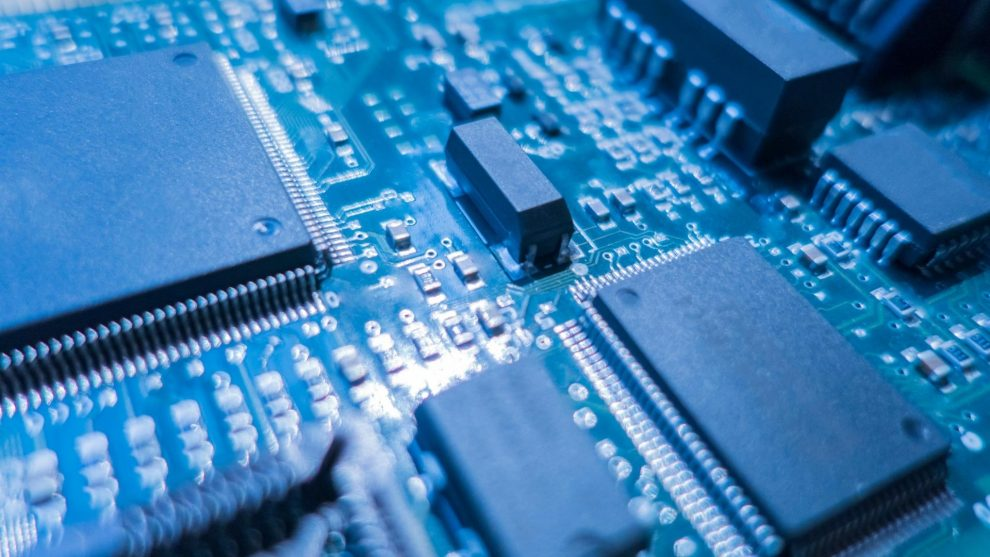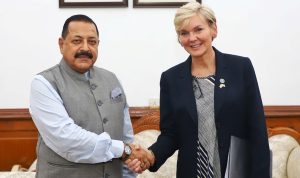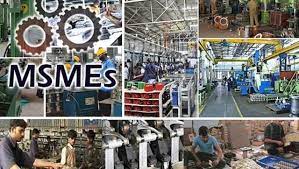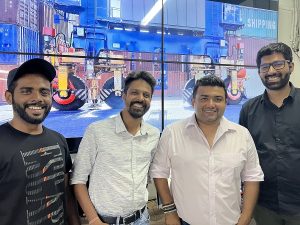IESA Releases Semiconductor Manufacturing Supply Chain & India Semiconductor Market Report

IESA (India Electronics and Semiconductor Association) has released two reports. Titled ‘The India Semiconductor Market Report 2019-2026’ and ‘The Semiconductor Manufacturing Supply Chain'.
IESA (India Electronics and Semiconductor Association) has released two reports. Titled ‘The India Semiconductor Market Report 2019-2026’ and ‘The Semiconductor Manufacturing Supply Chain’.
IESA’s report ‘India Semiconductor Market Report 2019-2026’ reveals that India’s Electronic System Design and Manufacturing segment would play an instrumental role in the country’s end equipment market growth. Touching upon the global shortage and the Indian production, IESA’s report showed that only 9 percent of India’s semiconductor components were sourced locally last year. However, the government’s ‘Make in India’ and PLI policies for semiconductors is expected to be a game-changer for the space, driving local sourcing further. With this, local procurement will grow by over 17 percent by 2026. As per the report, some of the primary growth drivers include accelerated digitization, dependence on complex electronic systems to process vast amounts of data, and the increasing use of technologies like AI.
Furthermore, the report also highlighted that 80 percent of the total revenue in the Indian semiconductor industry stemmed from mobile phones, smart wearables, IT, and other industrial components. Additionally, with the telecom industry preparing to rollout 5G technology by deploying cloud networks, the demand for semiconductors is expected to skyrocket. The report also focused on how the semiconductor demand is boosting the Auto industry and will give rise to EV Segment.
The report, ‘Global Semiconductor Manufacturing Supply Chain Repor’ focused upon the criticality and sustenance of the semiconductor manufacturing supply chain. Globally, from USD 440 billion in 2020, the semiconductor manufacturing market comprised of Materials, Equipment and services t is likely to touch USD 1 trillion by 2030. The 3 important pillars of the ecosystem being the Semiconductor manufacturing equipment, materials (Chemicals, Minerals, and Gases) used in the manufacturing process, and services across the semiconductor manufacturing value chain, the overall global opportunity across these elements is estimated to be USD 550-600 billion by 2030. This report estimates an opportunity of about 80B $ for the Indian industry by 2030. Also, the report reveals the opportunity for innovation and Research in the Semiconductor manufacturing equipment – Submodules, Consumables and spares for the MSME industry in India.
IESA’s report also found that the evolving and volatile nature of the current geopolitical events will play a crucial role for industry players as they will need to seek sourcing partners beyond their existing suppliers. Besides, the growing adoption of sustainable manufacturing practices is also compelling manufacturers to broaden their supplier network. And according to IESA, India could well emerge as the latest innovation partner and a significant supplier in the next 10 years. This immense potential complements India’s goal of reaching USD 1 trillion in export value by 2030. Besides creating a business opportunity for the Indian industry, the report also points to the strategic importance of India to play a relevant and significant role in the Semiconductor Manufacturing Supply Chain.
Speaking on the reports, The Spokesperson of IESA said, “The demand for semiconductors is growing astronomically worldwide. However, taking multiple factors into consideration, including the pandemic and the global geopolitical events, the manufacturing of the components is heavily impacted. IESA’s reports were aimed at analyzing the market situation, manufacturing supply chain, and prospects for India. They highlight the key aspects and offer detailed insights. While the local production is currently low, India has immense potential to become a leading supplier in the coming years, provided the talent pool and resources are utilized correctly. If this is done, the semiconductor market can be a major contributor to economic growth, and India’s dream of becoming a USD 5 trillion economy can be fulfilled.”





